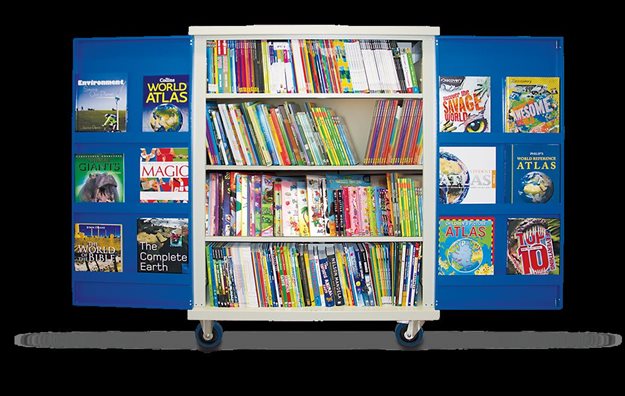
Among the range of reasons for South Africa’s scourge of illiteracy is inadequate teacher instruction, lack of a reading culture and a severe shortage of libraries in schools. According to Masennya Dikotla, the CEO of the Molteno Institute for Language and Literacy, only 10% of South African schools have functioning libraries. The value of a functioning school library has been recognised globally and shown to enhance the academic development of learners.
To address the scarcity of libraries in schools, Molteno delivers mobile libraries to schools, community centres and traditional offices in cities, towns and villages all across South Africa.
“The mobile library units offer a practical, sustainable, timeous and cost-effective alternative to traditional libraries,” says Dikotla. “They are well-stocked, providing a variety of English and African language books for children in all primary school grades (Grades 1 to 7) - from storybooks, novels, readers and biographies right through to dictionaries and encyclopedias. Also available is Molteno’s Vula Bula book series, targeted at learners in Grades 1 to 3, which offer entertaining stories for children in all South Africa’s vernacular languages. Books in the mother tongue are essential, especially for the early stage development of children’s reading ability. No textbooks are provided as the mobile libraries serve to promote reading for enjoyment and enhance and complement the school curriculum.
“The mobile libraries improve children’s access to books, giving them greater opportunity to practice their reading skills, while enabling them to learn more about the world around them,” explains Dikotla. “This helps to improve their self-confidence and school performance. By making a range of reading material available through these library units, we aim to encourage a love of books and reading among children. Corporates, foundations and individuals can contribute towards tackling the reading crisis and invest in the future of our country by sponsoring our mobile libraries in schools.”
Once schools receive a mobile library, they can keep the unit and all the books within it. Each unit is lockable and holds an average of 300 books. As the mobile libraries have wheels, they can easily rotate within the school. Typically, each school has one or two mobile units.

Through these libraries, teachers have a multitude of books to read to children, learners are provided with a wealth of stories to read and enjoy in the classroom and they can also take books home. Children then have the opportunity to read books in their own time and within the comfort of their homes. With more books in the household, it is hoped that parents and caregivers will be encouraged to read them to kids. “The PIRLS report shows that children whose parents/caregivers read to them have enhanced reading achievement and do much better in school,” explains Dikotla.
To ensure libraries are well managed, Molteno recruits unemployed matriculants in communities and gives them basic librarianship skills such as cataloguing, tracing books and barcoding among numerous other skills. Molteno negotiates with schools and the local municipality to give them a monthly stipend.
Molteno has been running its mobile libraries since 2010 and they are still going strong. The organisation hopes to access resources to enable it to roll out more across the country, so children can realise their right to read to lead a better, brighter future.
Each mobile library unit is R35,000. Corporates, foundations and individuals that want to sponsor Molteno’s mobile libraries for schools can contact Brenda Ramokgadi on az.oc.onetlom@adnerb or +27 (0)11 484 6245.